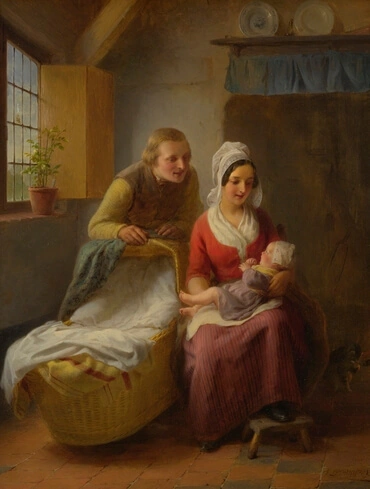1
И сказалъ Іегова Моисею: еще одну казнь Я наведу на Фараона и на Египтянъ; послј того онъ отпуститъ васъ отсюда. Когда же онъ будетъ отпускать, то съ поспјшностію будетъ гнать всјхъ васъ отсюда.
2
Внуши народу, чтобы каждый у ближняго своего, и каждая женщина у ближней своей выпросили вещей серебряныхъ и вещей золотыхъ.
3
Іегова далъ благодать народу въ очахъ Египтянъ; да и Моисей былъ весьма великъ въ землј Египетской, въ глазахъ рабовъ Фараоновыхъ, и въ глазахъ народа.
4
И сказалъ Моисей: такъ говоритъ Іегова: въ полночь Я пройду посреди Египта.
5
И умретъ всякій первенецъ въ землј Египетской, отъ первенца Фараона, который сидитъ на престолј своемъ, до первенца рабы, которая при жерновахъ, и все первородное изъ скота.
6
И будетъ по всей землј Египетской великій вопль, какого не бывало, и какого не будетъ болје.
7
Напротивъ у всјхъ сыновъ Израилевыхъ ни на человјка, ни на скотъ не пошевелитъ песъ языкомъ своимъ, дабы вы знали, какое Іегова дјлаетъ раздјленіе между Египтянами и между Израильтянами.
8
Тогда придутъ всј рабы твои сіи ко мнј, и поклонятся мнј, говоря: выйди ты и весь народъ, который тебј послјдуетъ. Послј чего я и выйду. И вышелъ Моисей отъ Фараона съ гнјвнымъ лицемъ.
9
И сказалъ Іегова Моисею: не послушаетъ васъ Фараонъ, и такимъ образомъ умножатся чудеса Мои въ землј Египетской.
10
Моисей и Ааронъ сдјлали всј сіи чудеса предъ Фараоеомъ. Іегова ожесточилъ сердце Фараона, и онъ не отпустилъ сыновъ Израилевыхъ изъ земли своей.







